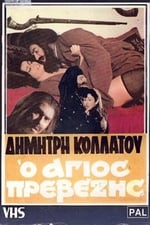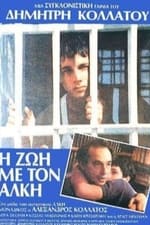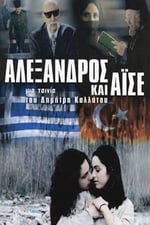Personal Info
Stage Name Δημήτρης Κολλάτος
Known For Directing
Known Credits 10
Gender Male
Birthday June 9, 1937
Day of Death January 30, 2025 (87 years old)
Place of Birth Athens, Greece
Also Known As
- -
Content Score
100
Yes! Looking good!
Login to report an issue
Biography
Dimitris Kollatos (Athens, 9 June 1937 – 30 January 2025) was a Greek film and theatre director, actor and writer. In 1959-1960 he founded the "Experimental Pocket Theatre" and staged, in that and the following two theatrical seasons, in a basement on Stournari Street, Ionesco's "The Bald Singer", Samuel Beckett's "Endgame" and Harold Pinter's "Room", William Ing's "A Rainy Afternoon", René de Obaldia's "The Blessed One". He directed Euripides' "Iphigenia in Taurus" in the role of Iphigenia with Marietta Rialdi. On October 7, 1961 in Paris he staged Euripides' "Iphigenia in Taurus", at the Centre Culturel. The leading actors were: Arlette Baumann, Roger Jandly, Nicolas Ruffieux, M.-F. Bonte, F. Guiman. The French magazine "L'Express" described the performance as "a spring in French theater". Arlette Boman became his wife, with whom he had two sons, Alexandros and Alkis, and who starred in his films. With another relationship, he had a third son, Marios. In 1962, he made his first short film, "Athens Xi Psi Xi", which was awarded at the Thessaloniki Film Festival. This was followed by his medium-length film, "Elies" in 1964, which was also awarded. In 1966, his feature film, "The Death of Alexander", was ignored by the official awards at the Thessaloniki Film Festival, but it won three Critics' Awards (best film, best screenplay, best music) and was not only an artistic but also a box-office success, since when it finally managed to be shown in Athenian cinemas, it sold 29,900 tickets in one week. Manos Hadjidakis had said: "The most important film that was shown at the Thessaloniki Festival, a truly powerful presence that left me stunned with the courage and power of its conception, was Dimitris Kollatos' film "The Death of Alexander". This is the truly great film of the festival. Dimitris Kollatos is the first Dramatist of Greek cinema." During the dictatorship in Greece, he settled permanently in France, where he staged 20 theatrical productions, creating the "Théatre de l'Art" (Théatre de l'Art) in the same building of Châtelet, in Paris. There he presented, among others, the play Philippe Pétain and his play "The Woman of Socrates", a monologue starring his wife Arlette Beaumans, which he staged at the Théatre de l'Art. The premiere took place on December 22, 1973. It was selected as the best performance of the year, and was presented at the Theatre of Nations in Brussels and repeated in January 1975 and September 1976. He also made the film "Symposium" (1972), on the theme of love and homosexuality. In 1974 he staged his play "Good evening, Mr. Chekhov" with Arlette Beauman and Fanny Ardant as co-stars. After his return to Greece in 1975, he began to stage a series of performances that were considered by many to be aimed at provocation (such as "Sodom and Gomorrah" with nudity that caused a stir at the time) or even political and social activism and not art, such as "The Shipowners", "Saint Prevezis" which was also made into a film (1982), "The Doctors". The so-called "theater of denunciation".
Dimitris Kollatos (Athens, 9 June 1937 – 30 January 2025) was a Greek film and theatre director, actor and writer. In 1959-1960 he founded the "Experimental Pocket Theatre" and staged, in that and the following two theatrical seasons, in a basement on Stournari Street, Ionesco's "The Bald Singer", Samuel Beckett's "Endgame" and Harold Pinter's "Room", William Ing's "A Rainy Afternoon", René de Obaldia's "The Blessed One". He directed Euripides' "Iphigenia in Taurus" in the role of Iphigenia with Marietta Rialdi. On October 7, 1961 in Paris he staged Euripides' "Iphigenia in Taurus", at the Centre Culturel. The leading actors were: Arlette Baumann, Roger Jandly, Nicolas Ruffieux, M.-F. Bonte, F. Guiman. The French magazine "L'Express" described the performance as "a spring in French theater". Arlette Boman became his wife, with whom he had two sons, Alexandros and Alkis, and who starred in his films. With another relationship, he had a third son, Marios. In 1962, he made his first short film, "Athens Xi Psi Xi", which was awarded at the Thessaloniki Film Festival. This was followed by his medium-length film, "Elies" in 1964, which was also awarded. In 1966, his feature film, "The Death of Alexander", was ignored by the official awards at the Thessaloniki Film Festival, but it won three Critics' Awards (best film, best screenplay, best music) and was not only an artistic but also a box-office success, since when it finally managed to be shown in Athenian cinemas, it sold 29,900 tickets in one week. Manos Hadjidakis had said: "The most important film that was shown at the Thessaloniki Festival, a truly powerful presence that left me stunned with the courage and power of its conception, was Dimitris Kollatos' film "The Death of Alexander". This is the truly great film of the festival. Dimitris Kollatos is the first Dramatist of Greek cinema." During the dictatorship in Greece, he settled permanently in France, where he staged 20 theatrical productions, creating the "Théatre de l'Art" (Théatre de l'Art) in the same building of Châtelet, in Paris. There he presented, among others, the play Philippe Pétain and his play "The Woman of Socrates", a monologue starring his wife Arlette Beaumans, which he staged at the Théatre de l'Art. The premiere took place on December 22, 1973. It was selected as the best performance of the year, and was presented at the Theatre of Nations in Brussels and repeated in January 1975 and September 1976. He also made the film "Symposium" (1972), on the theme of love and homosexuality. In 1974 he staged his play "Good evening, Mr. Chekhov" with Arlette Beauman and Fanny Ardant as co-stars. After his return to Greece in 1975, he began to stage a series of performances that were considered by many to be aimed at provocation (such as "Sodom and Gomorrah" with nudity that caused a stir at the time) or even political and social activism and not art, such as "The Shipowners", "Saint Prevezis" which was also made into a film (1982), "The Doctors". The so-called "theater of denunciation".
Directing
|
|||
|
|||
|
|||
|
|||
|
|||
|
|||
|
|||
|
|||
|
Writing
|
|||
|
|||
|
|||
|
|||
|
|||
|
|||
|
Acting
|
|||
|
|||
|
|||
|
|||
|
Production
|








